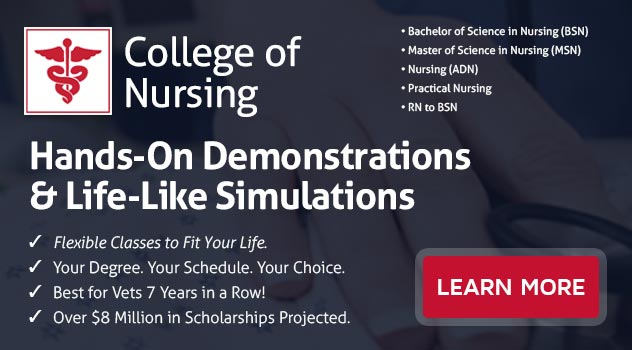Why is a BSN in Nursing Important for Nurses?
Earning a Bachelor of Science degree in nursing (BSN) is quickly becoming a requirement for prospective nurses. A 2010 report by the Institute of Medicine (IoM) projected that 80% of all working nurses will need to have a BSN by 2020. Although we are still falling short of this projection, the trend is clear for all to see.
Nurses with a BSN are generally considered more capable and valuable to healthcare institutions today. Their extra knowledge and expertise are not only helpful to the patients but also to their organizations. So, if you are still wondering why you need to earn a BSN, take these following points into account.
What is BSN?
The benefit of a BSN is in opening up a whole, wider set of possibilities for your career which includes specializations. As a bachelor's degree, students typically take 4 years to complete the degree, unless you attend an accelerated program.
Through this program, learners are taken through the necessary prerequisites of a nursing program. They are then required to undertake specialized training including research topics and clinical rotations before they graduate.
Some of the courses in BSN curricula include:
- Nursing theory and research
- Pediatrics
- Community nursing
- Nurse management and leadership
- Ethics of nursing
- Health assessment
Although this is not an easy program, earning a BSN could be the way to go if you want to be a career nurse and the rewards could be well worth it.
Benefits of Earning a BSN as a Nurse over ADN and LPN
Nursing is becoming a competitive field and experience will not open every door. If prime positions arise, you may need to show more than your experience to secure the top spot. You need to stand out from the rest. A BSN might be the deciding factor in the success or failure of you landing your dream job.
A BSN involves specialized training in highly technical skills as well as other complementary skills that are gaining more importance in today's job market. Skills such as management, business and leadership are very appealing to employers. Through these skills and knowledge, you could open yourself to more possibilities and therefore you can choose jobs based on your personal goals or preferences instead of settling for what comes your way.
The Importance of Networking as a Nurse
Getting a BSN requires you to interact with highly educated and experienced colleagues and professors which should expand your network. This will not only expand your possibilities, but it will also shape your perspective on the field. In most cases, this network will also help you get a chance at the best job openings.
If you have ambitions of becoming an administrator or manager in the medical field, earning a BSN could place you in the prime position for such opportunities.
Even if you will never give primary care to a patient as a manager or administrator, the first-hand experience of what the nursing staff deal with on a daily basis will help you be a more effective administrator.
A BSN will also expose you to a variety of soft skills including communications skills which are vital in administrative and supervisory roles. Through the program, you learn how to express complex medical information and theories in a useful and relatable way to people in different capacities.
Through courses such as research and community nursing, a BSN equips learns with the skills and expertise to use data from various sources to evaluate and recognize potential health patterns in the community. This is important in informing policy and planning of healthcare needs in the larger community.
Putting Your Best Foot Forward in Nursing School
If you are still in nursing school eager to earn your BSN, it is important to understand that it won't be necessarily easy. It is, therefore, crucial to make sure that you carve out adequate time to truly absorb what you are learning. Be prepared to put extra effort into understanding every concept introduced to you.
When it is time for the hands-on component of the training, it is important to approach these sessions with an open mind, willing to learn and not afraid to ask a question or participate. What you learn during your training will be very important throughout your career so pay extra attention.
Ready to Start Your Journey to BSN?
Are you interested in becoming a nurse? If you want to get your career off to the best start, consider ECPI University's Accelerated Bachelor of Science in Nursing Program. For more information about this exciting degree course, connect with a friendly admissions advisor today.
It could be the Best Decision You Ever Make!
DISCLAIMER - ECPI University makes no claim, warranty, or guarantee as to actual employability or earning potential to current, past or future students or graduates of any educational program we offer. The ECPI University website is published for informational purposes only. Every effort is made to ensure the accuracy of information contained on the ECPI.edu domain; however, no warranty of accuracy is made. No contractual rights, either expressed or implied, are created by its content.
For more information about ECPI University or any of our programs click here: http://www.ecpi.edu/.




